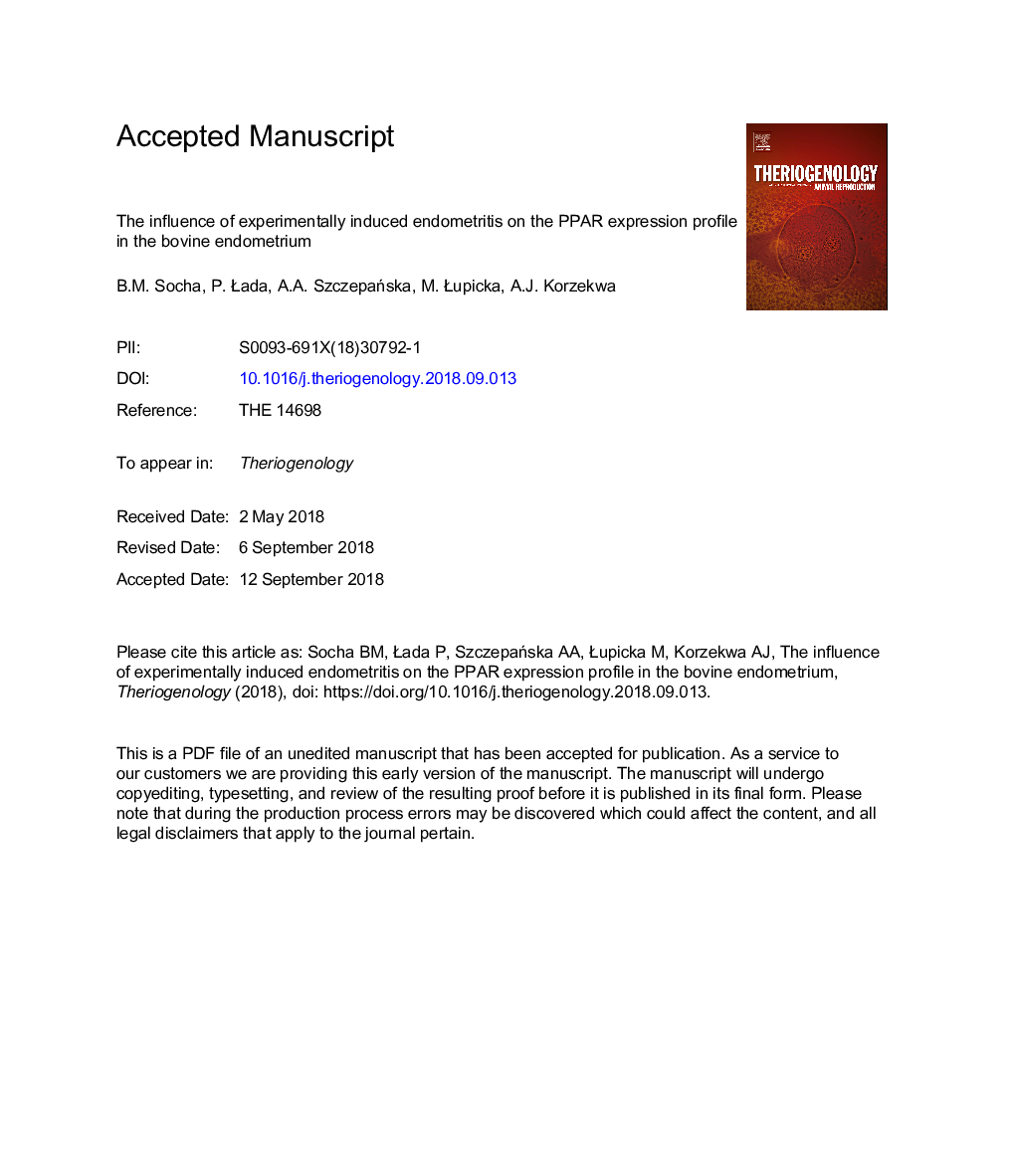| Article ID | Journal | Published Year | Pages | File Type |
|---|---|---|---|---|
| 10148199 | Theriogenology | 2018 | 40 Pages |
Abstract
Peroxisome proliferator-activated receptors (PPARs) are ligand-activated transcription factors of the nuclear receptor superfamily. The PPARs activity can be modified e.g. by arachidonic acid metabolites. Escherichia coli (E. coli) is one of the main infectious agent of endometritis in dairy cows. We hypothesized that PPAR expression profile change in the bovine endometrium under the influence of LPS or E. coli. In experiment 1, endometrial explants were obtained post mortem from heifers and incubated without (control) or with LPS for 12, 24, 48, 72 and 96â¯h. In experiment 2, heifers were intrauterine infused with 0.9% NaCl (control) or with E. coli suspension in 0.9% NaCl. Endometrial biopsies were performed before (0â¯h) and 12, 24, 48, 72, 96â¯h after the infusions. In experiment 1, the increase in protein expression was observed for PPARα 48â¯h, for PPARβ/δ 24, 72 and 96â¯h, whereas for PPARγ 12, 24 and 96â¯h after LPS treatment relative to the control groups. In experiment 2, the up-regulation in protein expression was observed for PPARα 48 and 72â¯h, for PPARβ/δ 72 and 96â¯h, for PPARγ1 and PPARγ2 12 and 96â¯h after the intrauterine infusion with E. coli suspension compared to the control group. Changes in mRNA and protein PPAR expression profile in endometrial explants under the exposure of LPS indicate participation of these nuclear receptors in signal transduction during stimulation with LPS. The patterns of mRNA and protein PPAR expression in endometrial bioptates suggest that during experimentally induced endometritis in vivo, PPARs role may be connected both with enhancement of inflammation as well restoring physiological conditions in uterus.
Related Topics
Life Sciences
Agricultural and Biological Sciences
Animal Science and Zoology
Authors
B.M. Socha, P. Åada, A.A. SzczepaÅska, M. Åupicka, A.J. Korzekwa,
